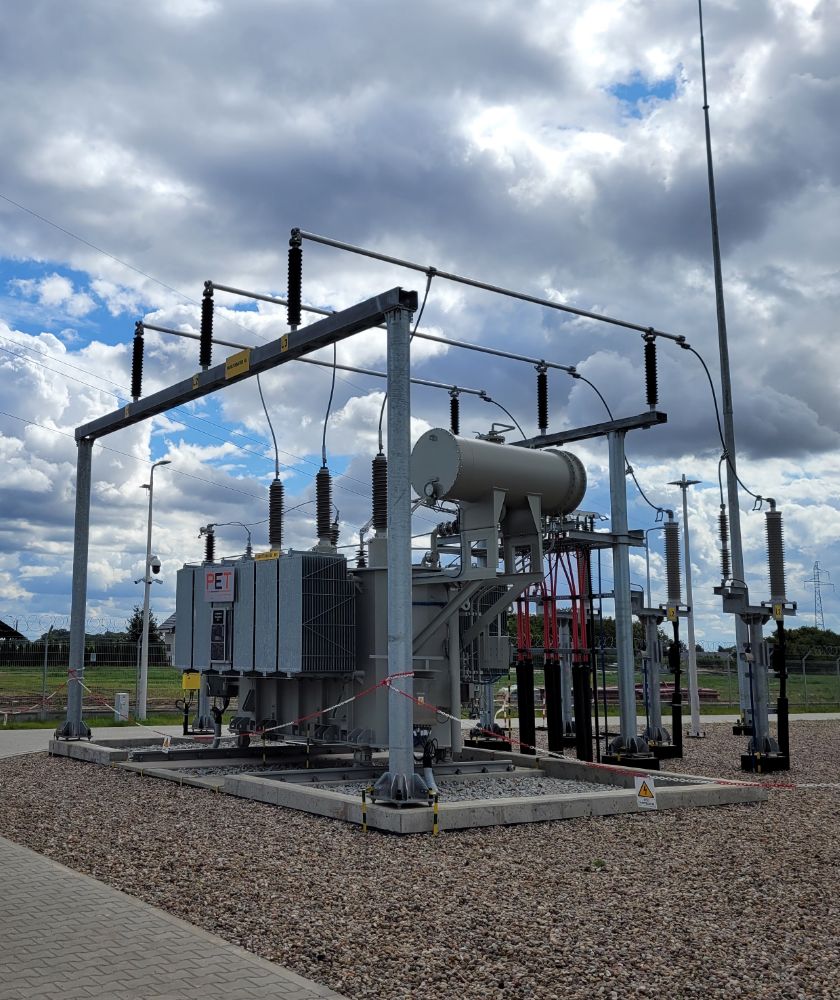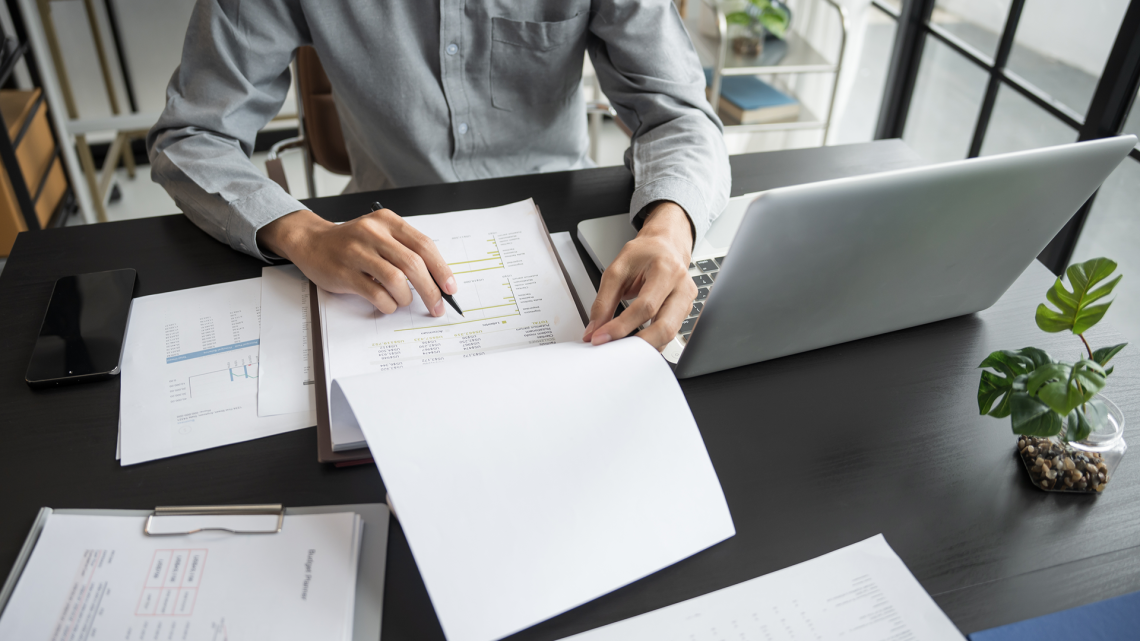The engagement between the consumer and Enea Operator begins when the consumer expresses a desire to be connected to the power grid. This stage of engagement is governed by the Energy Law and the company’s internal procedures. The process of connecting an entity to the power grid ends with the execution of a distribution service purchase agreement or a comprehensive agreement, in accordance with the “Distribution Grid Traffic and Operation Instructions.” The execution of such an agreement serves as the basis for supplying electricity to the end-user. From that moment on, the engagement between the parties is permanent, and the end-user regularly receives invoices for the electricity supplied. Ongoing communication is conducted through standard channels: CSC, e-CSC, e-mail, website form, helpline, text messages, mobile applications or letters delivered by post. Such communication may pertain to settlements, changes to contractual terms, breakdowns and scheduled power outages.
ESRS S4 Consumers and end-users

Interests and views of stakeholders
The interests, views and rights of consumers or end-users, including respect for their human rights, affect the Group’s strategy and business model. In terms of customer relations and the security and reliability of energy supplies, the Enea Group’s Development Strategy until 2035 has adopted objectives such as ensuring a continuous supply of electricity with appropriate quality parameters and adapting the distribution network to operate in a decentralized power system.
Moreover, all activities of the Group affecting consumers or end-users are conducted in accordance with generally applicable laws and market standards, such as the Compendium of Electricity Consumer Rights and the Best Practices of Electricity and Gaseous Fuel Suppliers.
As regards personal data protection, the Group has a Personal Data Protection Policy in place that complies with the Personal Data Protection Regulation, and the parent company aims to reduce data protection incidents to a minimum. Enea S.A., when reacting to incidents related to any breaches of personal data protection, continuously inspects the implemented procedures and amends the adopted solutions as necessary.
Material impacts, risks and opportunities and their interaction with strategy and business model
The Enea Group’s impacts, as identified in the Double Materiality Analysis, on consumers, that is on persons and entities receiving or collecting electricity, are a consequence of the business model adopted by the parent company or subsidiaries.
1. The extent of disclosure includes all consumers and end-users on whom the Group exerts a material impact.
The impacts exerted by Enea Operator, due to the specific nature of its business, focuses on the reliability of energy supply, network upgrades, enabling the development of renewable energy sources and the safe use of energy. These impacts are directly related to the Enea Group Development Strategy until 2035 and determine its provisions through statutory obligations in terms of energy security and energy supply. The Strategy establishes the following strategic development directions for distribution:
- ensuring continuous supply of electricity with appropriate quality parameters,
- adaptation of the distribution network to operate in a decentralized power system.
The risks and opportunities identified during the Double Materiality Analysis result not only from the pursuit of the Enea Group Strategy in the area of distribution, but also from statutory obligations and the adopted business model.

The Enea Group’s negative impacts on customers are related to breaches of data protection or competition regulations, and as such are unrelated to any specific group of customers. The Group’s identified negative impacts on customers are of an incidental nature.
The issue of personal data security is regulated in the Group at the level of distinct companies. In the Enea Group’s parent company, the issue of data protection is embedded in the strategies and business models that ensure data security and an appropriate level of data protection for consumers in compliance with the applicable laws and guidelines issued by state authorities. In parallel, Enea S.A., when reacting to incidents related to any breaches of personal data protection, continuously inspects the implemented procedures and amends the adopted solutions as necessary.
The activities carried out by the Group companies in 2024 with a view to ramping up positive impacts on consumers included: expansion of the network in north-western Poland along with the ensuing improvement in energy security and connection capacity for both generators (including RES ones) and electricity consumers. The Group’s parent company also published a “Guide to energy efficiency, or how to save and protect the natural environment by using energy efficiently in the household through the exercise of control over energy consumption and the use of new technologies,” and rolled out the program “Save Energy with Krzyś the Electrician” – Enea Group employees visited schools and kindergartens to provide children with interesting information on the power sector, energy generation and safe handling of electricity.
Material risks and opportunities arising from the Enea Group’s influence on all consumers are presented in the General Disclosures section.
Human rights
In 2024, the Enea Group did not have a uniform Group-wide human rights policy in place for consumers and end-users. However, the Enea Group Code of Ethics specifies, among other issues, the principles of equal treatment of employees and zero tolerance for discrimination, requiring that every person is treated with equal respect regardless of their position, place of employment, seniority, gender, age, disability, race, religion, nationality, political beliefs, ethnic origin, religion or sexual orientation.
Although the Enea Group Code of Ethics was prepared on a basis other than the UN Guiding Principles on Business and Human Rights, the Group is of the opinion that the provisions of the Code are not at odds with the values laid down in these international regulations. Across the value chain, the Group companies did not record any cases of non-compliance with the UN Guidelines on Business and Human Rights, the International Labor Organization’s Declaration on Fundamental Principles and Rights at Work, or the OECD Guidelines for Multinational Enterprises.
Some of the Group companies apply the regulations of the “Compendium of Electricity Consumer Rights,” in accordance with their specific line of business.
The Compendium, which was developed by the Energy Regulatory Office in cooperation with the Office of Competition and Consumer Protection, defines in detail the rights of electricity consumers and the obligations of distribution companies. Each chapter of the Compendium deals with a different set of issues, such as grid connections, the right to choose a supplier, tariffs, payments, complaints, social activities for the benefit of energy consumers and the prevention of unfair market practices

Taking action on material impacts on consumers and end-users, and approaches to managing material risks and pursuing material opportunities related to consumers and end-users, and effectiveness of those actions
The Group’s activities related to the handling of breaches of competition and personal data protection laws are focused on ensuring compliance with generally applicable laws and on implementing administrative decisions addressed to specific Group companies.
The Group does not have any separate processes in place to determine the types of actions needed and appropriate in response to negative impacts. Actions are taken in accordance with current business needs and the requirement to ensure compliance with the law. Enea S.A. has a Sustainable Direct Marketing Policy in place, which defines the principles that the Company follows in its conduct of marketing activities, and a uniform Personal Data Protection Policy consistent with the General Data Protection Regulation (GDPR) is in force throughout the Enea Group.
In order to mitigate material risks resulting from material impacts, the Group monitors the regulatory environment on an ongoing basis and adapts its practices to generally applicable laws. In terms of customer relations, the Group intends to take steps aimed at enlarging its customer base outside its distribution area.
In order to ensure that marketing practices do not contribute to material negative impacts, appropriate policies have been adopted, such as the Sustainable Direct Marketing Policy at Enea S.A. As regards the security of customer data, the way to ensure that the Group’s practices do not contribute to material negative impacts is to comply with the provisions of the Enea Group Personal Data Protection Policy, which has been developed in compliance with the General Data Protection Regulation.
In the reporting period, no serious human rights issues or incidents related to consumers or end-users were reported. In the reporting period, the Enea Group did not incur any considerable operating expenses (OpEx) or capital expenditures (CapEx) on activities related to consumers or end-users. In this context, “considerable” should be construed as expenses or expenditures above PLN 50 million.
The Enea Group has not adopted a policy on customer relations, because such issues are regulated at the level of each company. For instance, the issue of responsible marketing practices at Enea S.A. is regulated in the Enea S.A. Sustainable Direct Marketing Policy. In accordance with its provisions, the Company maintains good practices and competition rules and observes the law, in particular with regard to the protection of personal data, when conducting marketing activities. Enea S.A. does not conduct any marketing communication the content of which breaches any personal rights, includes any elements of violence, hatred, offensive behavior, or any manifestations of human rights violations. Contacts with consumers are based on the legitimate interest of Enea S.A., as provided for in the GDPR, and depend on the consent expressed by consumers.

Issues such as a fair approach to consumers, respect for their rights and reliable fulfillment of executed contracts are also regulated in the Company, including through the “Enea S.A. Sales Standards for business customers” and the “Code of Best Practice for the processing of personal data in the sales area.” Enea S.A. also holds the title of Certified Energy Seller, awarded by the Energy Trading Association. The certificate confirms, among other aspects, the application of the principles presented in the guidebook entitled “Best Practices of Electricity and Gaseous Fuel Suppliers,” published by the Energy Trading Association. Enea S.A. undergoes an annual audit carried out by an external party to verify compliance with the guidebook. The most recent such audit was completed in November 2024.
In order to raise customer awareness, conduct an open dialogue and maintain partner-like business relations with medium-sized and large enterprises, Enea S.A. holds webinars and conferences on the current situation in the European and domestic energy markets, pointing out any major market trends and changes in progress. During meetings with customers, the Company also discusses changes in the range of products offered and modern solutions for business, for instance those related to green energy or energy efficiency. Such activities will be continued in the coming years. The expected outcome is to elevate customer awareness and build partnership-based business relationships with medium-sized and large enterprises.
Material topic: Security and reliability of electricity supply
The Enea Group does not have a separate policy in place regarding the security and reliability of electricity supply. This notwithstanding, one of the pillars of the Group’s Development Strategy until 2035, as adopted in 2024, is to develop and assure security of the distribution network. In turn, one of the objectives is to ensure a continuous supply of electricity with appropriate quality parameters, where the key measures are the SAIDI and SAIFI values to be achieved in 2035: a SAIDI of 80 minutes and a SAIFI of 1.79. Progress towards these targets is shown in the table below. The targets do not meet all requirements of MDR-T ESRS 2.
A uniform “Personal data protection policy in the Enea Group” applies across the Group. It is largely based on Regulation 2016/679 (GDPR), accompanying acts and guidelines issued by national and European supervisory authorities. The Policy governs the processing and management of personal data protection in accordance with the applicable legal requirements and to the extent commensurate with any identified threats and risks. The Policy also defines data protection-related responsibilities and powers vested in companies, their organizational units and employees. The Personal Data Protection Department and the Enea Group’s Personal Data Protection Division are responsible for pursuing its objectives. The interests of key stakeholders were not taken into account when deciding on the content of the Policy.
The “Personal data protection policy in the Enea Group” is shared with employees on the intranet. Moreover, the Group publishes information on its website regarding the processing of personal data for customers and contractors.
Enea S.A. has put in place procedures to ensure the security of consumer data entrusted to the Group. All Enea S.A. customer service representatives hold the proper authorization to process data and undergo regular training in data protection. Employees also regularly receive communications containing important information on data protection. In 2024, no major human rights issues or incidents involving consumers or end-users were reported at Enea S.A.
Targets related to managing material negative impacts, advancing positive impacts, and managing material risks and opportunities
At Enea S.A., the invariable objective for 2024 and subsequent years in the context of personal data protection is to reduce the number of incidents to a minimum. This goal is open-ended. The base year for setting the target is 2023, and the baseline is over 100 incidents in total. The target is in line with the Enea Group Personal Data Protection Policy, which states that the Group must establish a personal data protection processing and management system that complies with the applicable legal requirements. The objective has been set based on historical data on the number of incidents related to personal data. When setting the target, the Company did not cooperate with stakeholders or directly with consumers or end-users. They were also not involved in tracking the results of its achievement or in identifying possible conclusions or improvements. Information about each incident is sent to the Enea S.A. Data Protection Officer (DPO). At the request of Enea S.A., the processor, that is Enea Centrum, keeps an incident register, which is updated on an ongoing basis and available to the DPO. In 2024, all employees serving consumers were required to complete a data protection training course. Its contents were updated and all participants were required to pass a final test. Furthermore, the Company adheres to a principle according to which any action or omission by a customer service employee that results in a personal data security incident triggers the requirement for the employee to be referred back to the training and test. No objectives were adopted in this regard in the other companies.
Processes for engaging with consumers and end-users about impacts
In some Enea Group companies, customer feedback affects decisions or actions regarding the management of actual and potential impacts1. In the parent company, the outcomes of customer satisfaction surveys carried out by the Product Marketing Department affect service and sales activities. Based on surveys and interviews with customers, environmentally friendly products are rolled out, such as EKO Oferta for households and EKO Biznes for business customers. This provides customers with the opportunity to purchase electricity generated from renewable sources in accordance with their expectations, thus helping them contribute to reducing their carbon footprint and negative impact on climate. Customer feedback, obtained through surveys, also translates into the deployment and development of new communication and service channels. Direct engagement takes place with specific consumers or users to whom the message is conveyed.
Enea Operator cooperates with consumers both directly and through reliable representatives. Most often, communication occurs during visits to Customer Service Offices, via the helpline, e-BOK and contact forms on the website. In more formal situations, often those caused by glitches in mutual relations and requiring the participation of professional representatives, communication with consumers and other users is conducted through reliable representatives, such as attorneys-in-fact representing Enea Operator customers in pre-trial and court proceedings, the Energy Regulatory Office (in situations specified in the Energy Law – as an entity initiating administrative proceedings at the request of an Enea Operator customer or an entity applying for connection to the grid) and the Office of Competition and Consumer Protection (which may initiate proceedings at the request of an Enea Operator customer).
The Director of the Service Sales Department, the Director of the Planning and Development Department, the Directors of the Development and Investment Units of the Distribution Branches and the Directors of the Distribution Districts at Enea Operator are responsible for operational engagement with consumers in various areas. The company does not evaluate the effectiveness of its engagement with consumers or end-users.
Due to the nature of Enea Operator’s business, which is the provision of a public utility service such as energy distribution, particularly vulnerable or marginalized consumers are those who have been granted a housing allowance within the meaning of the Housing Allowance Act. Such consumers may apply to electricity suppliers for funds from support programs to cover their outstanding and current debts for electricity or services provided. A customer (or a member of their household) who is in need of long-term home care due to a chronic respiratory failure requiring mechanical ventilation may also submit such an application. The Energy Law prohibits the suspension of electricity supply to such customer groups in specific situations, including between 1 November and 31 March.
¹ There is no such impact at MEC Piła and Enea Ciepło.
Processes to remediate negative impacts and channels for consumers and end-users to raise concerns
Enea Group companies have deployed channels for consumers to report concerns about entities that may exert a material impact on them. The parent company has made this system available not only to consumers, but also to its own employees, workers in the value chain and affected communities. The procedures that make up the system are described in this Report under requirement S1-3 in section S1 “Own workforce.” Furthermore, in the segment of medium-sized and large business customers, the customer has the option of reporting any concerns directly to a dedicated account manager. After reviewing the reported concerns, the account manager provides the customer with a comprehensive reply or requests a pertinent organizational unit to provide a substantive response. Information on how to access the channels for reporting concerns may be found, for instance, on the companies’ websites.
In other Group companies, the channels for reporting consumer complaints include:
Also, consumers may use external mechanisms, such as the communication channels established by the Energy Regulatory Office, the Office of Competition and Consumer Protection and the Consumer Federation.
Enea S.A. reviews all notifications received on a case by case basis. Once the Company has completed the review, it prepares a final report on the notification, which includes the following elements:
- itemized list of the evidence collected and its evaluation,
- reference to the explanatory interviews conducted and the information obtained on the basis thereof,
- indication of whether, in the opinion of the Compliance Committee, a breach has occurred, and specification of the subject matter, entity and time of the breach,
- recommendation of the professional consequences agreed upon within the Compliance Committee,
- conclusions, identified gaps in processes and inspections carried out,
- recommendations for follow-up steps.

Some Enea Group companies have implemented the following corrective measures:
- discounts in the event of failure to reach the required quality parameters and paid easements for the installation of heating infrastructure on consumers’ land (Enea Ciepło),
- improvements in contracts, settlement corrections in the event of documented damage, compensation payments from the third-party liability policy in the event of damage resulting from a negative impact caused by the company’s staff (Enea Centrum).
The effectiveness of the corrective measures taken is not evaluated. However, the final report on the notification should include, without limitation, conclusions, information on identified gaps in processes and controls carried out, and recommendations agreed within the Compliance Committee. The aim is to prevent negative impacts and, as a consequence, to reduce the number of cases where corrective measures will need to be taken.
No formal system was put in place by the Enea Group for evaluating the effectiveness of the channels provided to consumers for reporting concerns and no procedures were implemented to determine whether consumers are aware of the existence of such channels.
The Enea Group did not conduct any surveys on consumer awareness of the existence channels for reporting concerns. Such a survey is planned for 2025. The Group has policies in place to protect bona fide whistleblowers from retaliation. These are described in ESRS G1-1 of this Report.